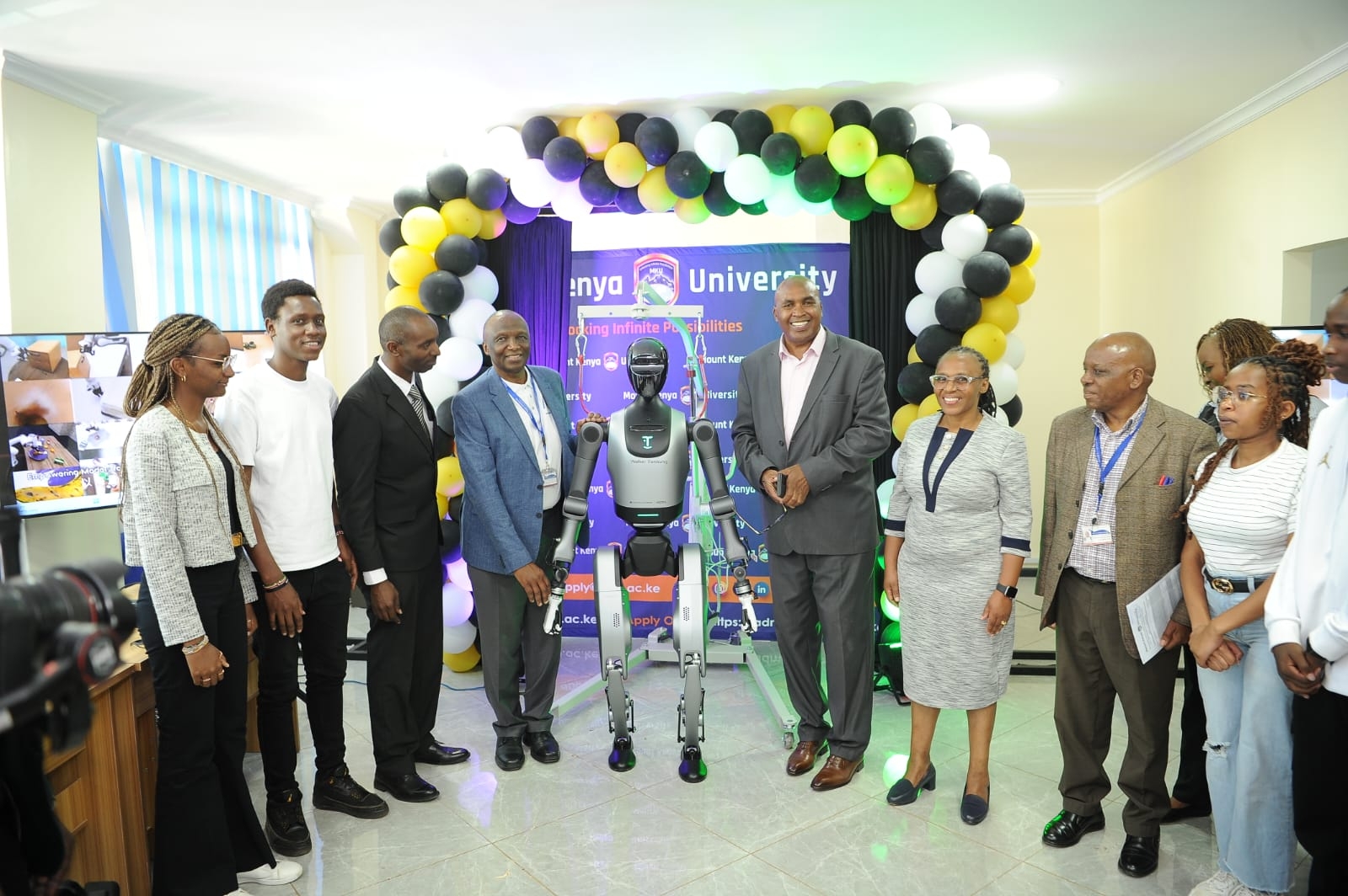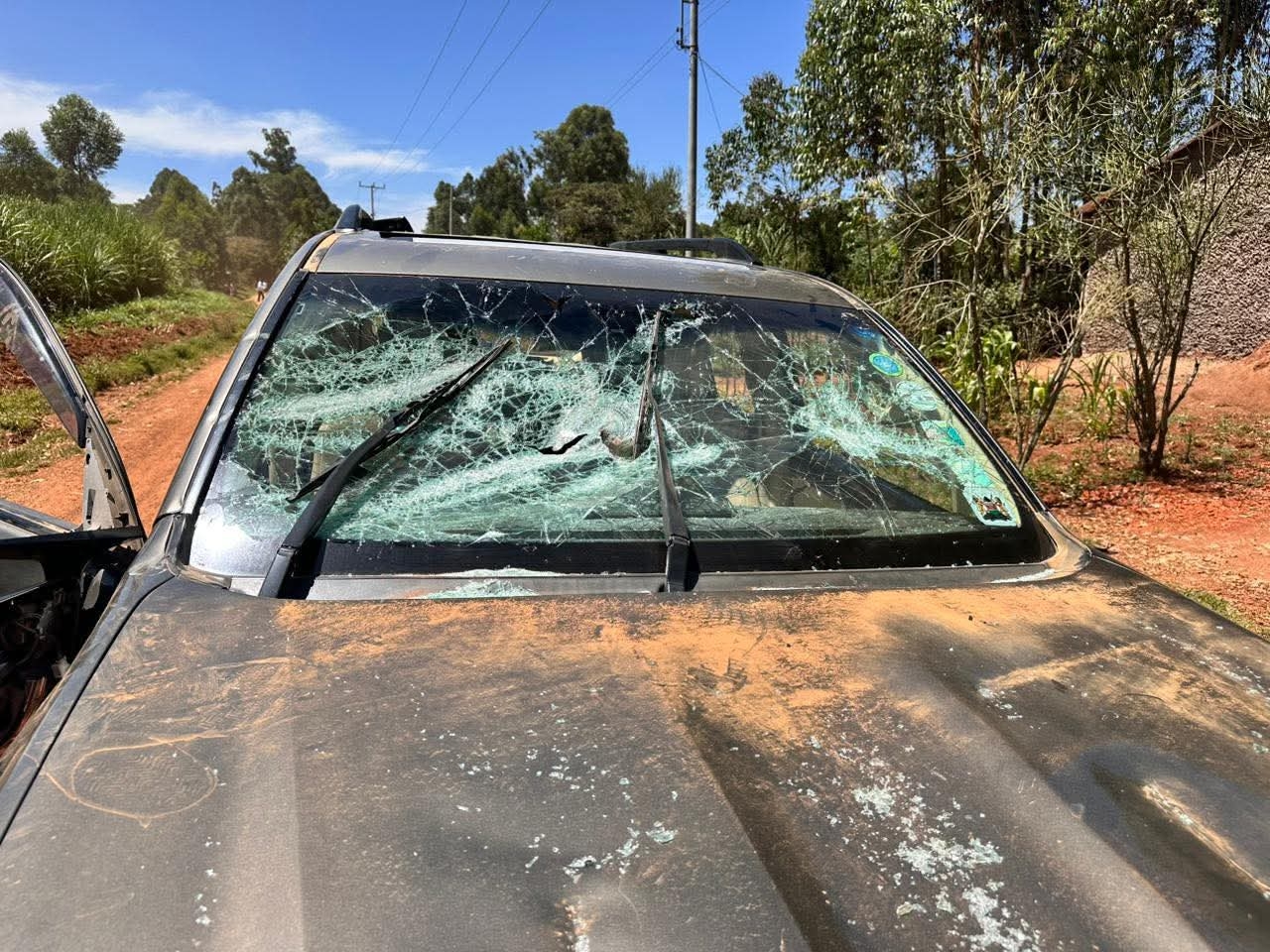Victor Ochieng, a resident of the Kibera informal settlement, has been living in this house made of twist block technology for about two years.
He says life has never been the same since he moved to the house.
"When I am in this house, I no longer experience the heat waves. This house has a way of regulating temperature when it is cold or hot outside" said Ochieng.
One of the components used in these low-cost blocks is a low quantity of cement, partly explained by the shape of the blocks that assume a hollow feature compared to other building blocks in the market.
The blocks also are interlocked hence they don't require cement for bonding the blocks together.
The building is an initiative by Startsomewhere, a startup based in Kibera.
"We have built several schools in Kibera using this technology. This has ensured that the children have a better and conducive learning environment through the thermal insulation nature of this technology which is better structure than the earthen and iron sheet structures they had," said Lazurus Asewe Managing Director Startsomewhere.
Additionally, the blocks offer a cheaper and more affordable construction alternative to the iron sheet and earthen shelters synonymous with informal settlements.
"This technology cuts the overall construction costs by around 40 per cent in addition to securing piped water, providing proper sanitation and enough space for air circulation in all our projects," added Lazurus.
Informal settlements form the landing bay of rural-urban migration as well as climate refugees.
World Bank estimates that by 2050, climate change could force the internal migration of over 200 million people, most of whom would move to the already densely populated areas.
Housing therefore becomes one of the sectors that becomes overstretched carrying with it the stresses of access to clean water and sanitation as well as air circulation.
All of which have a further impact on the general health and well-being.
"When climate change strikes, in addition to lives lost, homes are affected, destruction of infrastructure that supports basic services like water, sanitation and electricity are all impacted.
"We also see an increase in climate refugee influx in cities and other areas of the country," Maurice Makoloo Habitat for Humanity Africa Area Vice President.
As the effects of climate change continue to be felt globally, experts, governments and academia have been looking for ways to mitigate or better reduce its effects.
"Part of our interventions is in the innovation where we appreciate that the future requires different types of building materials that are green, and those that make the home much more affordable, habitable and resistant to climate change impacts," added Makoloo.
The UN estimates that cement is the second most consumed substance on Earth after water.
The cement industry accounts for 7-8 per cent of human-induced CO2 emissions.
Decarbonisation dominated the recent Africa Climate Summit in Nairobi that culminated in the Nairobi declaration.














![[PHOTOS] Ole Ntutu’s son weds in stylish red-themed wedding](/_next/image?url=https%3A%2F%2Fcdn.radioafrica.digital%2Fimage%2F2025%2F11%2Ff0a5154e-67fd-4594-9d5d-6196bf96ed79.jpeg&w=3840&q=100)

